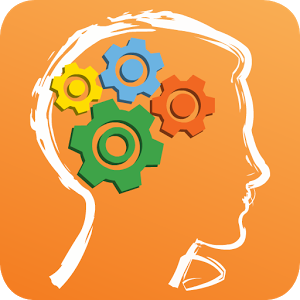Evidence for Brain-Training Apps is Lacking
While my grandmother used to do crossword puzzles and play Sudoku to stay sharp in old age, older people today are being exposed to more high-tech solutions to staying sharp, specifically, brain-training games. The creator of the brain-training app, Lumosity, touted research that stated people who played the app had greater improvements in cognitive functioning than those who just did crossword puzzles. Without a doubt, these brain-training apps can be entertaining, but scientists doubt that they actually make you smarter, as the creators of these apps claim.

Photo Credit: Flickr / Creative Commons / JPAPPSDL
I talked to a professor of cognitive psychology at Northwestern University, David Rapp. “I used to get a kick out of playing them, but didn’t put much faith in actually “training my brain” to do anything with them,” he told me. He then pointed to an article in Scientific American written by David Z. Hambrick that presents a case against the claims of the app’s companies.
Although some studies showed that brain training apps improve intelligence, these studies had some serious issues. One study had a group of low-income children who were playing educational games while the other group received social services, health care, and nutritional supplements. The group who played educational games had IQs that were about six points higher than the control group, a medium size effect.
Another study led by Susanne Jaeggi in 2008 had a group do a difficult task which required a person to monitor two streams of information, one auditory and one visual. Fluid intelligence, or the ability to solve novel problems, was measured. The results showed that the group who did the task had better scores on the reasoning tests, high enough to impact people’s lives. Also, the more you train short term memory, the more improvement you see in IQ, according to the researcher.
But there were problems with the study. First, they didn’t have a control placebo group. So, the possibility that the experimental group, the one who did the task, improved simply because they expected to improve is not ruled out. Also, the reasoning test varied across groups. In addition, they only used one reasoning test for each person. Getting a better score on one reasoning test does not necessarily mean they are smarter. It means they are better at that specific reasoning test.
When scientists tried to replicate the study, this time with a placebo control group, the experimental group showed no more improvement on fluid intelligence than the control groups.
Furthermore, a meta-analysis that synthesized the results of 23 studies did not show improvement of fluid intelligence due to brain training games.
In another study, the researchers tried to prove that a game called Neuroracer could lessen the cognitive effects of aging in older adults. There were problems with this study too. They only showed improvements in three of 11 measures. The sample size was also very small, and nearly a quarter were dropped from statistical analysis, meaning these results might not replicate. There also was no proof that Neuroracer improved their real-world functioning.
In conclusion, the evidence for brain training apps is lacking. There are proven techniques that can improve cognition, one being physical exercise. While fluid intelligence is hard to change, crystallized intelligence can be changed. Crystallized intelligence involves learning new things, for example, an instrument or a new recipe.
Lumos Labs, the creator of the app Lumosity, was fined $2 million by the Federal Trade Commission for overstating the app’s benefits. The company suggested that playing the app’s games could avert memory loss, dementia, and even Alzheimer’s disease, but it did not have the science to back up its ads.
Prices of the Lumosity app sit at $11.95 a month, $47.96 a year, and $239.96 for a lifetime premium membership. Some of the app’s functioning is available for free. The price is pretty steep for something that made false claims.
While these apps may be fun, counting on them alone to make you smarter may not be the best idea. You may be better off taking a brisk, 30-minute walk or learning something new than playing a brain-training game. The scientific evidence to back up the claims of the app companies is not all there.